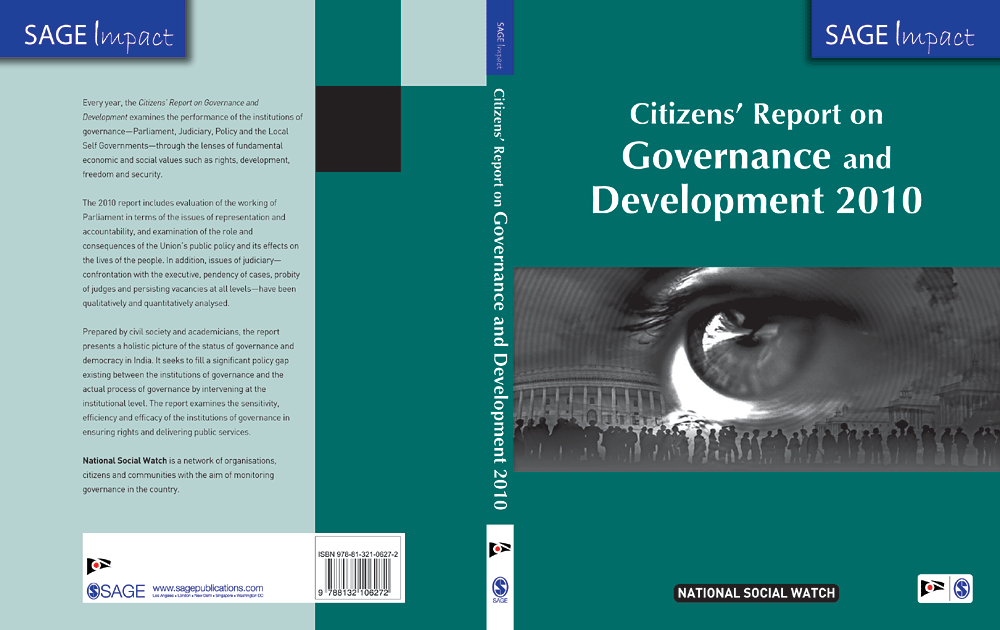Social Watch India launches its Report on Governance and Development
|
Published on Wed, 2010-12-15 15:31
Source: National Social Watch Coalition India (NSWC) The 2010 report of Social Watch India, to be launched in Delhi next Tuesday December 21st, includes evaluation of the working of Parliament in terms of the issues of representation and accountability, and examines the role and consequences of the Union’s public policy and its effects on the lives of the people. In addition, issues of judiciary - confrontation with the executive, pendency of cases, probity of judges and persisting vacancies at all levels- are qualitatively and quantitatively analysed. Prepared by civil society and academicians, the report presents a holistic picture of the status of governance and democracy in India. It seeks to fill a significant policy gap existing between the institutions of governance and the institutional level. The report examines the sensitivity, efficiency and efficacy of the institutions of governance in ensuring rights and delivering public services. The report will be presented on Tuesday December 21st, 2010 at India Islamic Cultural Centre, Lodhi Estate, New Delhi. The ultimate test of effective governance is the fulfilment of its commitments to the citizens ensuring delivery of public services right up to the excluded and the marginalised sections of society. Institutions and their functionaries are the vehicles which carry the governance agenda forward. They represent the connecting links between the State and the citizens in terms of programmes of development. Therefore citizens must reclaim the institutions to serve their interests by participating actively at all levels of governance. It is thus important for a civil society initiative like Social Watch to intervene at different levels through constant and critical evaluation of the performance of these institutions and serve as an effective advocacy tool. In this backdrop the Citizens' Report on Governance and Development 2010, evaluates the four key institutions of governance in India: the Parliament, the judiciary, the policy-making institutions (the executive) and the institutions of local self-government. Through the lens of fundamental economic and social values—such as Rights, Development, Freedom and Security—this report examines the sensitivity, efficiency and efficacy of the institutions in enforcing rights and ensuring delivery of public services. While reviewing the major developments of the year and probing the dynamics of democratisation, the 2010 Report also: — highlights the casual and inadequate manner in which parliament functions; — analyses various reform measures and welfare schemes adopted by the government while cautioning against putting public resources into private projects, under the mantra of public–private partnership; — examines some significant court verdicts and argues that solutions for the judicial system should have a demand-orientation, which protects the poor; and — observes that the State Governments' performance in the process of decentralisation leaves much to be desired, despite the consensus about objectives. By now, this annual report—unique to the Indian political landscape—has developed into a fine tool for individual citizens and organised civil society to make government institutions more accountable. The latest edition will generate a healthy and constructive debate on the entire process of governance in India and will be welcomed by policy-makers, lawyers, scholars studying governance, journalists, civil society activists and concerned citizens.
National Social Watch
Tags: » |
SUSCRIBE TO OUR NEWSLETTER



